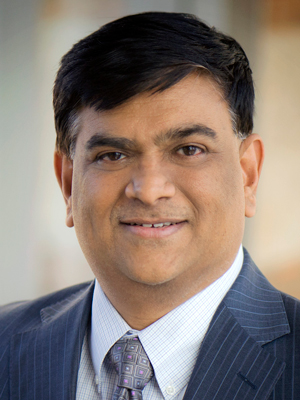
Dr. Anand J. Puppala, distinguished professor in civil engineering and associate dean of research for the College of Engineering at The University of Texas at Arlington, will be joining the Zachry Department of Civil and Environmental Engineering at Texas A&M University in fall 2019 as A.P. Florence Wiley professor in fall 2019.
“One of the important topics to me is to work with the CIR and develop new methods and materials, including composite materials, for enhancing infrastructure performance with longer design lives,” Puppala said.
Puppala will be contributing to the geotechnical research area with an interest in pavement and materials stabilization for infrastructure support and unsaturated and expansive soils characterization. He will be conducting research at the Center for Infrastructure Renewal (CIR), an $80 million, 138,000-square-foot, multidisciplinary research center that boasts state-of-the-art facilities aimed at making infrastructure smarter, more resilient and longer lasting.
The research he conducts for the National Science Foundation, U.S. Department of Transportation, Texas Department of Transportation and other entities helps infrastructure last longer and take on less stress during their usage.
“Some of the recent research I am conducting now is drone-based research,” Puppala said. “We are working on how we can survey structures and process photogrammetry data to get a quick and meaningful performance assessment.”
Such structural assessments take time and money away from municipalities, so improvements in this process could lead to a reduction in taxpayer costs. Puppala is also working on developing and researching composite materials to support infrastructure in the geotechnical field, including making materials recyclable to support sustainability.
Puppala is the current chair of the geotechnical engineering section of the Transportation Research Board and a member of the American Society for Civil Engineers technical coordination council.
“I’m really excited to be coming to Texas A&M and the CIR,” Puppala said. “It’s a great opportunity to work with some well-known and established faculty on topics of natural interest.”